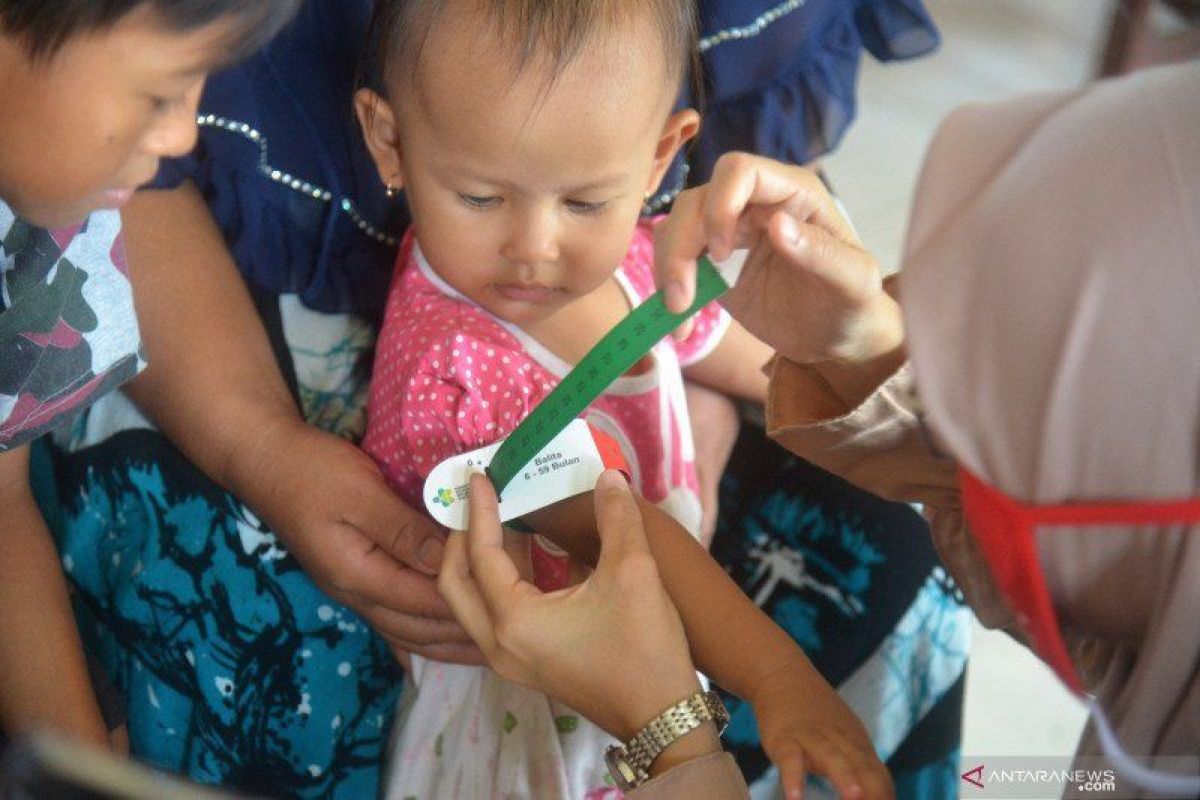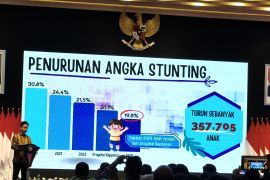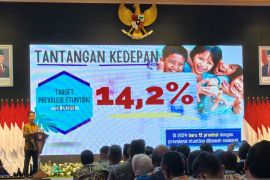Stunting could hinder brain development, cause mental degradation, and reduce studying capabilityJakarta (ANTARA) - Stunting, characterized by growth failure in children under the age of two due to long periods of malnutrition, poses a long-term danger for the future of children.
"Stunting could hinder brain development, cause mental degradation, and reduce studying capability," Professor Rini Sekartini from the University of Indonesia's Faculty of Medicine noted during a webinar on Thursday.
The other impacts of stunting on children include vulnerability to diseases, decline in cognitive capability, and suboptimal body posture when they become adults.
In addition, unbalanced body functions and increased risk of chronic diseases as they get older such as diabetes, hypertension, and obesity are some of the other impacts.
Related news: Planning pregnancies can help prevent childhood stunting: BKKBN
In addition to chronic malnutrition for a protracted period of time, lack of protein intake, and chronic infection, stunting can occur due stunted growth in the womb during pregnancy and also inadequate psychosocial stimulation.
Preventing stunting can begin since pregnancy by paying attention to health and nutritional intake, Sekartini noted.
Next, the provision of exclusive breast milk to children, provision of complementary food for breast milk on time, and watching out for protein sources for food intake, including milk.
"After a year, food prepared by the family becomes the primary source, while milk acts as a complementary," she noted while adding that children could drink up to 500 ml of milk in a day.
This healthy eating pattern is also crucial when a child is infected with COVID-19.
Related news: BKKBN-DKT targets contraceptive use in 70% of mothers post-labor
Sekartini explained that COVID-19 is an acute virus like the flu, but it differs in variant. When the children recover, efforts should be made to revive their appetite in order to maintain nutritional intake.
Moreover, parents should pay attention to the cleanliness of children and the environment as well as monitor their growth periodically.
If a child is shorter than his or her peers, then parents could check the weight and height against the age in the Mother and Child Health Book to ensure that their children grow normally.
This is because children with stunting will definitely be short, but short children do not necessarily have stunting.
"From the start of conception until they are 18 years of age, they should really be monitored to prevent stunting," Sekartini emphasized.
Related news: Indonesian G20 pushes for concrete actions in three priority fields
Related news: Need to make G20 more festive: Governor
Translator: Nanien Yuniar, Fadhli Ruhman
Editor: Fardah Assegaf
Copyright © ANTARA 2022












